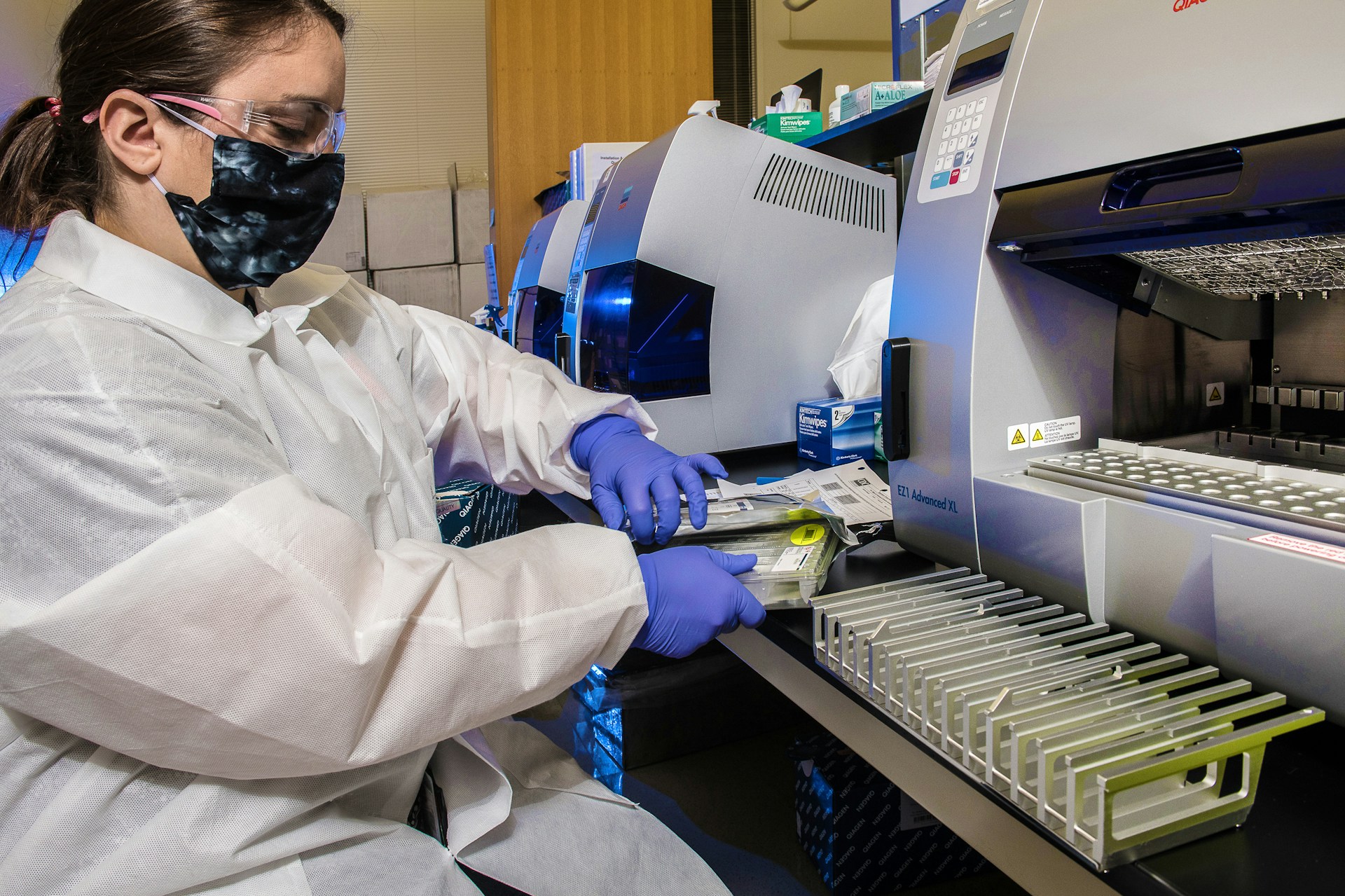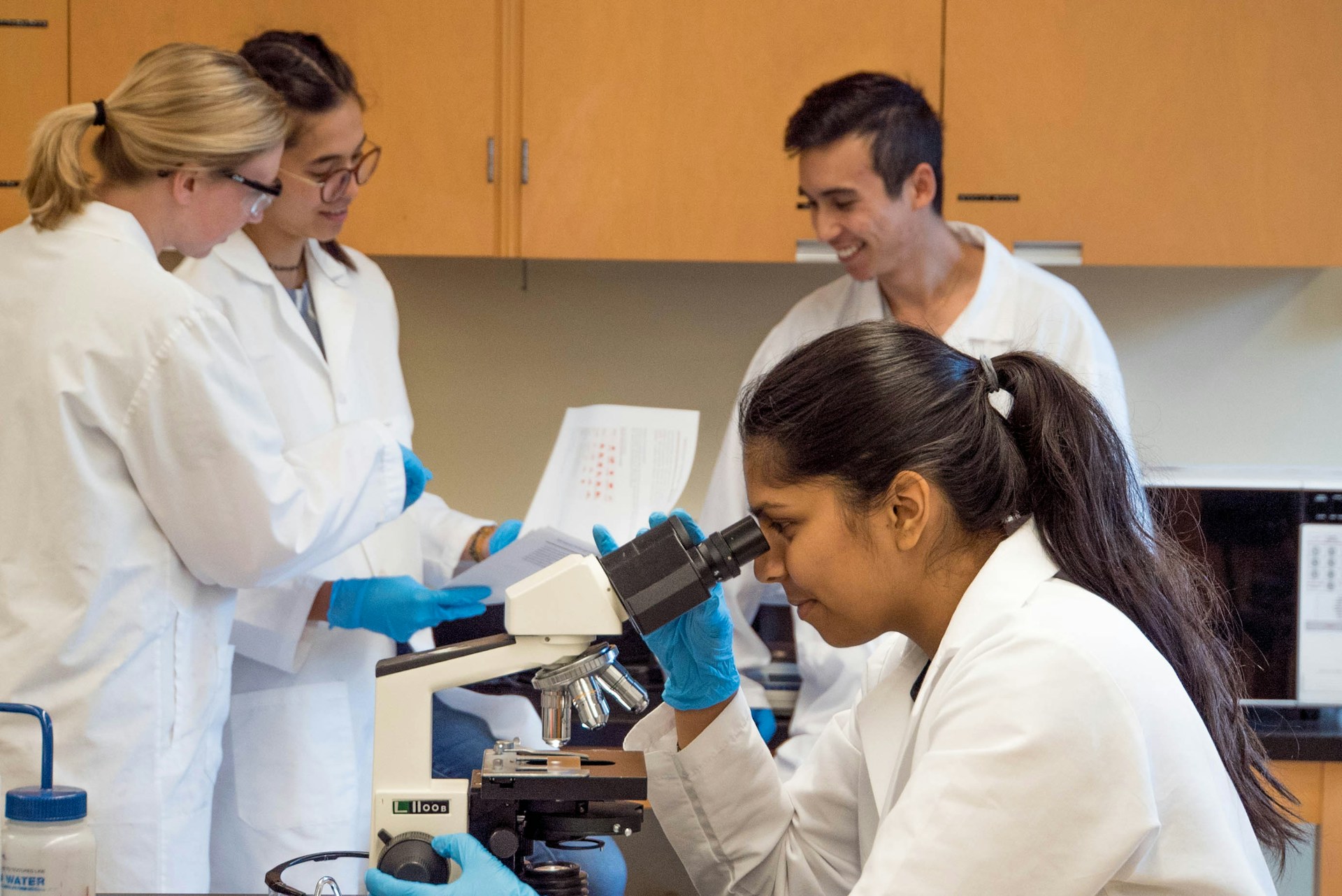Developing Careers and Medical Jobs in the Rare Disease Sector
23 May, 20247 minutesWithin medical jobs in rare diseases, employers are crucial in shaping the career paths of y...

Within medical jobs in rare diseases, employers are crucial in shaping the career paths of young scientists and researchers. By providing mentorship, access to resources, and opportunities for hands-on experience, they empower emerging talents to excel in their careers.
Employers can offer a collaborative culture where ideas flourish, enabling researchers to address the complexities of rare diseases confidently. As professionals gain expertise and make meaningful contributions to the field, scientists and researchers are positioned to advance their careers and make valuable contributions to rare disease research. Through guidance and support, employers play a pivotal role in guiding the next generation of leaders in the sector.
This guide will uncover the key strategies employers can use to develop medical jobs and career pathways for young talent in the rare disease sector.
How Can Employers Develop Careers in the Rare Diseases Sector?
Research shows that rare diseases affect more than 300 to 400 million people globally. These key figures clearly illustrate the importance of sourcing and guiding emerging talent to build high-performing teams within the sector. This can help tackle rare diseases and improve the overall well-being of the population.
In order to find the professionals they need, employers must shift their focus towards developing and advancing the careers of young scientists and researchers within the field to drive innovation and groundbreaking research.
So, what are the key strategies employers can use to develop careers and medical jobs for professionals starting out in the field? Let’s explore them:
1. Provide Clear Pathways for Development
First on our list of strategies is providing clear pathways for development in their chosen medical jobs to keep young talent engaged. By providing a development plan, employers offer them clear goals and an achievable vision for success with the correct support.
Why is outlining clear pathways for development in medical jobs in rare diseases important, and how can employers implement this?
Retention and Motivation
Clear career paths within various medical jobs in rare diseases, with milestones and opportunities for advancement, keep young researchers and scientists motivated and focused. Knowing what steps to take to achieve their long-term goals reduces uncertainty and frustration, helping them see how their work fits into the bigger picture and reducing the risk of leaving for other opportunities.
Maximising Potential
By offering clear career development plans, employers can implement targeted training initiatives to equip young scientists in roles such as clinical research jobs with the correct skills needed for rare disease research. Training could focus on research methods, data analysis, and project management.
Defined pathways help emerging professionals reach their full potential, build expertise, and allows them to become more skilled and productive. Ultimately, this increases talent retention efforts and creates a stronger workforce to drive innovation.
Addressing Unique Challenges
There is no doubt that rare disease research is challenging due to the small number of patients and the complexity of the conditions. Clear career paths help young researchers develop the skills and perseverance to address these challenges. Providing opportunities for growth encourages long-term commitment and increases talent retention. In rare disease research, results take time, meaning growth opportunities encourage young professionals to dedicate their careers to the important field.
2. The Power of Mentorship
Mentorship plays an essential role in developing the career paths of young professionals in rare disease jobs. Here are some examples of how and why mentorship is essential in creating growth opportunities for new talent:
Guidance and Support
Rare disease research comes with unique challenges due to limited patient populations and complex conditions. Mentors can guide young researchers and scientists through these hurdles by suggesting effective research approaches and sharing their experiences.
Employers can also provide valuable career advice, assisting professionals in identifying their strengths and interests, setting realistic goals, and overcoming potential career roadblocks. A trusted mentor can significantly boost a young researcher's confidence and ultimately improve long-term commitment.
Knowledge Transfer and Skill Development
Mentors in rare disease research play a crucial role in guiding young researchers in roles such as clinical research jobs. By sharing specialised knowledge, employers can help professionals understand the field and find areas to specialise in.
Mentors also teach essential research skills, including methodologies, grant writing, data analysis, and scientific communication. Employers also have the power to build professional networks by connecting young researchers with other experts, encouraging collaboration and career development in rare disease jobs.
Motivation and Inspiration
Offering mentorship for medical jobs in rare diseases inspires young researchers by sharing different perspectives of passion for the field and individual stories of discovery. Mentors advise on maintaining a healthy work-life balance, which is crucial for long-term success. As role models, mentors demonstrate potential career paths and achievements in medical roles, such as clinical research jobs, keeping young researchers and scientists motivated despite industry challenges.
3. Provide Access to Valuable Resources
Recent research suggests scientists have documented more than 10,000 rare diseases, ranging from Cystic Fibrosis to Zollinger-Ellison syndrome. Rare diseases are thought to affect around 30 million people in the US alone, equating to around 1 in 10 people. It is no secret that rare diseases have an immense impact on the population, necessitating the need to nurture emerging talent and build high-performing teams.
Why are Valuable Resources Important?
Offering a range of valuable resources, such as online courses, cutting-edge technologies, collaborative tools, proposal review services, and scientific journal subscriptions, is essential in upskilling existing employees. When professionals feel appreciated, supported, and equipped with the necessary tools to develop their careers, employers can build efficient teams that are ready to drive rare disease research initiatives.
Here is how offering access to valuable resources to professionals in medical jobs in rare diseases significantly enhances career development:
- Advanced training - Access to resources such as online courses, workshops, or conferences equips professionals with the latest knowledge on research methods, data analysis, and specific techniques to progress in their roles.
- Specialised knowledge acquisition - Resources such as scientific databases, relevant journals, and specialised software equip professionals with in-depth knowledge about specific rare diseases. Access to these materials helps them develop expertise in their chosen areas of interest, opening doors to new growth opportunities.
- Research and innovation - Cutting-edge tools and technologies allow researchers to conduct effective experiments and explore innovative approaches in rare disease research, leading to groundbreaking discoveries and career development opportunities.
- Collaboration and knowledge sharing - Online collaborative platforms and research networks promote collaboration among young researchers and encourage knowledge sharing and idea exchange. Collaborative resources accelerate research progress in combating rare diseases and ignite career development among employees in roles such as clinical research jobs.
- Visibility - Grant writing workshops and proposal review services provide young professionals with the skills and support needed to secure funding for their projects, enabling them to pursue their research interests and make valuable contributions to the field. Access to scientific journal subscriptions and publication support services assists young researchers in publishing their findings, further enhancing career development and visibility.
4. Build a Collaborative Work Culture
Working in collaborative environments can serve as a strong source of motivation. Young researchers have the opportunity to observe the dedication and enthusiasm of their peers, and witnessing successful research outcomes can ignite their own scientific aspirations.
Here are some examples of how collaborative work culture can enhance career development opportunities within medical jobs in rare diseases:
Learning Opportunity
While rare diseases are complex and typically demand insights from multiple scientific fields, collaboration encourages the sharing of knowledge and learning among researchers. Young professionals can gain from the wisdom of senior colleagues while also injecting their own innovative viewpoints. The exchange of ideas speeds up learning and builds varied skill sets.
Problem-solving
Tackling complex issues in rare diseases demands creative thinking. When colleagues come together in collaborative settings, they engage in open discussions and brainstorming to solve any potential issues that may arise for young researchers and scientists in rare diseases.
Potential issues could include:
- Struggling to secure research funding due to low commercial interest and slowing progress.
- Lack of specific data and biomarkers, complicating research and treatment development.
- Fragmented research efforts that hinder collaboration and resource sharing among rare disease researchers.
- Small patient populations hindering sample accessibility
Through this teamwork, brainstorming professionals can come together as a team to form logical solutions, where fresh research and even treatment breakthroughs can emerge.
Networking
Working together often helps build valuable professional connections. Young researchers and scientists get to meet peers from different institutions, which could open doors to future collaborations or job prospects. Valuable connections play a vital role in advancing career development in rare disease jobs and medical jobs.

5. Offer Hands-On Experience
Now, let’s talk about the value of experience. Hands-on experience is invaluable for young researchers and scientists looking to advance their careers in medical jobs and rare diseases. Here are the key benefits of offering hands-on experience to employees:
Building Core Skills
When employers offer hands-on experience in rare disease research, they show their dedication to employee growth. Experience is crucial for career development, helping employees master specialised lab techniques like cell culture and genetic analysis, essential for conducting independent research. Professionals can also learn to analyse complex data, draw meaningful conclusions, and identify research trends, which are vital for a successful scientific career in rare disease jobs.
Develops Confidence and Credibility
Hands-on experience can really boost a young researcher's confidence and credibility. It gives them the skills to tackle their own projects, from developing research questions to designing experiments. Sharing their findings through publications or at conferences can enhance their reputation in the scientific community.
Plus, this practical experience shows employers in the rare disease sector that they have strong skills and a solid work ethic, helping them stand out in the industry and develop their careers.
To learn how a life sciences recruitment agency can support you in hiring and building successful teams, discover our insightful guide - Benefits of a Life Sciences Recruitment Agency: Rare Diseases.
Final Word on Developing Medical Jobs in the Rare Diseases Sector
Employers play an essential role in shaping the careers of young scientists and researchers in the rare disease sector. By offering mentorship, access to resources, and hands-on experience, they provide the tools needed for these professionals to thrive.
Clear career paths and development opportunities keep young researchers motivated and focused, reducing uncertainty and enhancing retention. Employers who invest in the targeted development of their teams not only help young scientists build essential skills but also build a more skilled and productive workforce. Investment leads to groundbreaking research and advancements in treatment options, ultimately driving progress in the field of rare disease research.
Mentorship, access to valuable resources, and hands-on experience further enhance young researchers' confidence and credibility, preparing them for independent research and career advancement. By building a culture of collaboration and continuous learning, employers can guide the next generation of leaders in the rare disease sector, ensuring sustained contributions and lasting impact in this vital field.
Are you an Employer in the Rare Diseases Sector?
Do you need support in building the next generation of leaders? Our specialist life sciences recruitment agency possesses the expertise, insights, and outstanding resources to source and place top emerging talent in medical jobs in the rare disease sector, ranging from bioinformatics roles to clinical research jobs. With our unrivalled talent pools and extensive networks, we support you in building a high-performing team.
Contact us today to discuss your business requirements.










